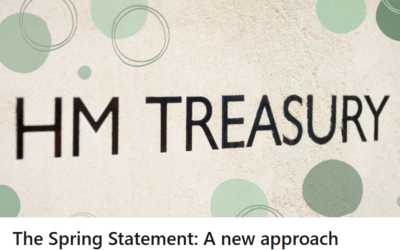Government, businesses, and universities operate under distinct frameworks, often leading to misaligned expectations when engaging with civil servants.
As policymaking accelerates and significant Civil Service reforms unfold, officials are under increasing pressure and constraints—but effective engagement remains possible.
Check out our top tips to help you navigate these conversations and relationships below.
If you want to learn more about how you can effectively engage with policymakers, get in contact at tendo@tendoconsulting.co.uk
Those shaping policy within government operate differently from businesses and universities. They have distinct priorities, constraints, and working styles, which can sometimes lead to misalignment in expectations and communication gaps about what kind of input is most valuable.
At the same time, policymaking is moving at an ever-faster pace, leaving civil servants under significant pressure. Many would like to engage with a wider range of stakeholders but have limited capacity to do so.
The forthcoming Civil Service reform will bring shifts in internal dynamics, adding further pressures and diverting attention.
That’s why engaging with officials in a constructive and effective way is essential. Here are six key things to keep in mind:
Understand the Political Context and Align Your Messaging
Government priorities evolve in response to political and economic shifts, so staying informed about the broader policy landscape is crucial. Tailor your messaging to align with current government objectives and demonstrate how your insights or proposals support their agenda.
Be Constructive and Offer Support
Civil servants are more often than not overstretched. Instead of just highlighting problems, provide solutions and practical support—whether that’s sharing data and insights, facilitating introductions to relevant experts, or assisting with ad hoc evidence gathering. The more useful and actionable your input, the more likely it is to be taken forward.
Communicate in a Policy-Friendly Manner
Officials value clear, concise, and well-structured communication. When engaging with them, provide a succinct overview of the policy issue, its implications, and practical recommendations. Avoid jargon, and focus on what is feasible within the policy and political constraints they are working under.
Give Early Warnings of Upcoming Challenges (When Appropriate)
Take this tip with a pinch of salt—it’s not always suitable. If you have established a strong and trusted relationship with a policy team working on your area of interest, and the bottleneck is political capital, then a heads-up can be valuable. If you anticipate an issue that will put pressure on a department—such as new data, an emerging industry concern, or a proposed amendment to a Bill—flag it early. This allows officials to plan ahead, brief ministers, and avoid being caught off guard.
Leave the Political Pressure to Politicians
Civil servants advise but do not make final decisions. Their role is to provide ministers with the best possible evidence and options. Avoid combative or overly political language—instead, equip them with strong evidence and persuasive arguments that help them make the case internally.
Think Long-Term and Build Relationships
Effective engagement isn’t just about one-off interactions; it’s about developing trust over time. Policy cycles can be slow, and influencing change requires patience. Use quieter political periods—such as the summer recess—to build relationships and establish yourself as a reliable expert in your field.
Engaging with government isn’t always straightforward, but when done well, it can be highly rewarding and have a tangible impact on policy outcomes. There’s no one-size-fits-all approach, but understanding how to navigate Westminster and Whitehall effectively will significantly improve your chances of success.



